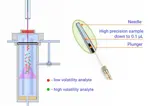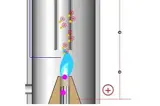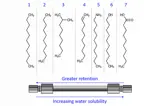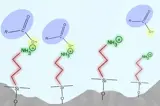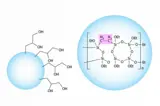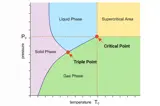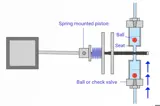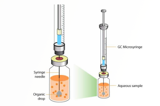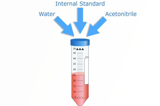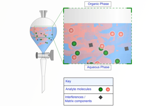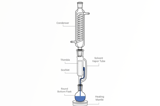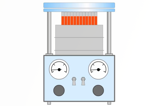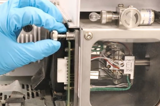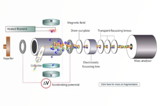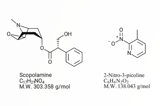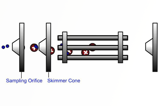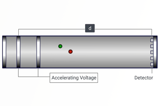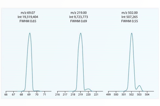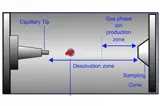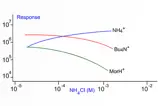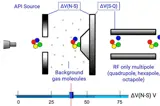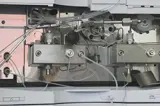Chromatography Training for Environmental Analysis
Looking to improve your team's skills in environmental chromatography?
CHROMacademy offers industry-leading chromatography training for environmental analysis, equipping analysts with the tools and knowledge to detect and quantify pollutants in air, water, soil, and sediment using the latest techniques.
Environmental laboratories rely heavily on gas chromatography (GC), liquid chromatography (HPLC/UHPLC), and mass spectrometry (MS) for accurate identification of contaminants. These techniques are essential for:
- Monitoring water and air quality
- Detecting persistent organic pollutants and emerging contaminants
- Ensuring compliance with environmental regulatory standards
CHROMacademy’s online training modules cover HPLC, GC, GC-MS, LC-MS, and sample preparation techniques - all vital components of modern environmental analysis workflows.
Why Environmental Chromatography Training Matters
Proper training in chromatography and environmental sample preparation techniques ensures your lab can:
- Accurately detect and quantify trace-level contaminants
- Handle complex matrices such as soil and sediment
- Improve efficiency and reduce costly errors
- Stay compliant with environmental regulations
Learn Environmental Mass Spectrometry & Chromatography Online
CHROMacademy provides flexible, online training for environmental chemists, covering the most commonly used techniques in the industry:
- Gas Chromatography (GC) and GC-MS
- Liquid Chromatography (HPLC/UPLC) and LC-MS
- Solid Phase Extraction (SPE), SPME, and QuEChERS
- Method development and validation
Our self-paced courses are ideal for onboarding new staff or upskilling experienced analysts in analytical chemistry for environmental applications.

GC
GC is used for analyzing volatile organic compounds (VOCs), pesticides, and hydrocarbons in air and water samples. GC offers high sensitivity for volatile and semi-volatile compounds, effective in detecting low-level contamination.
Applications:
- VOCs in air
- Water pollution studies
- Oil spills
- Pesticide analysis
- Environmental forensics
HPLC
HPLC is used for analyzing non-volatile compounds such as pesticides, pharmaceuticals, herbicides, and heavy metals in water, soil, and biological samples. It is suitable for a wide range of compounds, including polar, ionic, and thermally labile substances.
Applications:
- Water quality testing
- Monitoring of pharmaceutical contaminants
- Determining pesticide residues
Sample Preparation
Sample preparation is critically important in environmental analysis because environmental samples are often complex, variable, and dilute. The accuracy, sensitivity, and reliability of analytical results - whether using HPLC, GC, IC, or other techniques - depend heavily on effective sample preparation.

GC-MS
GC-MS combines gas chromatography for separation of volatile and semi-volatile compounds with mass spectrometry for detection and identification. It is particularly useful for analyzing organic pollutants in environmental samples.
Applications:
- Pesticide and herbicide detection
- VOCs
- PAHs
- Solvent contamination
LC-MS
LC-MS is ideal for the analysis of polar, non-volatile, and thermally labile compounds. It is frequently coupled with high-performance liquid chromatography (HPLC) for separating complex mixtures before mass spectrometric detection.
Applications:
- Emerging contaminants analysis
- Water quality monitoring
- Microbial and toxin analysis
- Nutrient monitoring
Useful CHROMacademy Learning Paths for Environmental Analysts
LC-MS is ideal for the analysis of polar, non-volatile, and thermally labile compounds. It is frequently coupled with high-performance liquid chromatography (HPLC) for separating complex mixtures before mass spectrometric detection.
Applications:
- Emerging contaminants analysis
- Water quality monitoring
- Microbial and toxin analysis
- Nutrient monitoring
Start Your Environmental Laboratory Training Today
Join thousands of professionals who trust CHROMacademy for expert-led, accessible, and effective environmental analysis training. Whether you're improving HPLC for environmental testing or mastering mass spectrometry for soil and water analysis, we’re here to support your success




